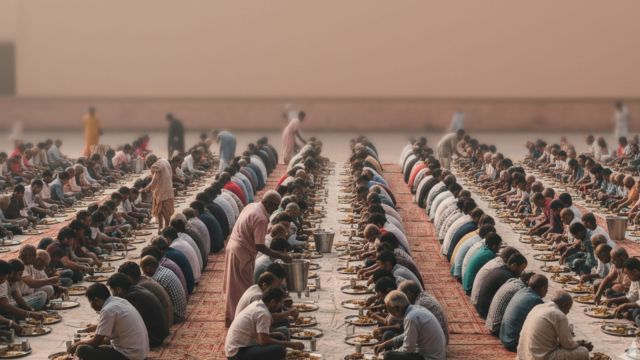Mata Chintpurni Trust dispute news: The Himachal Pradesh High Court rejected the plea of langar sevadars and electricians of Mata Chintpurni Temple seeking regularisation of their services, observing their engagement to be voluntary with no appointment by the temple trust.

“Besides this, it is to be shown that such appointment was fair, transparent, in conformity with Articles 14 and 16 of the Constitution of India, meaning thereby that opportunity was given to every interested person to participate in selection process, appointment was against sanctioned post and that some amount was being paid regularly,” he added.
Story continues below this ad
The high court also noted that no document, namely appointment letter, if any, was ever issued by the temple trust and concluded that producing documents that suggest that the temple officer or caretaker had assigned duties to various persons will not be sufficient to consider their appointment in the temple trust by the temple officer.
He further observed that the sevadars failed to prove the employee-employer relationship, pointing to the absence of major requirements which are quintessential to seek regularisation, such as ‘appointment by the employer, payment of regular remuneration, and existence of any service conditions.’
Reaffirming the earlier Division Bench’s finding, Justice Sharma noted that the sevadars were volunteers offering their services to the temple ‘free of charge’ and gratuitously.
One of the advocates of the sevadars, senior advocate Ajay Sharma, argued that the petitioners have been discharging their duties diligently to the utmost satisfaction of the temple trust for the last 15 to 16 years and pointed out that identity cards were also issued to them.
Story continues below this ad
He also relied on another case of 2014, where the court issued directions to the temple trust to regularise the services of daily wage labourers engaged by the temple trust for specific project works.
The high court, however, distinguishing the petitioners from the 2014 case, stated that they were engaged as ‘labourers on a daily wage basis’ by the temple trust in 1991, were paid wages on a daily basis, and muster rolls were issued in their favour and verified by the Junior Engineer of the Temple.
The state, represented by advocate general Anup Rattan, and advocate Rajesh Kashyap representing the Temple trust, argued that the petitioner had not approached the court with ‘clean hands’ and argued the petition should be dismissed on the ground of suppression of material facts.
What is the Mata Chintpurni Temple case
In this case, petitioners claimed to be serving in Mata Chintpurni Temple of Una district as langar sevadars, mandir sevadars, and electricians for the last 15 to 16 years and sought regularisation of their services with all consequential benefits of pay, seniority, etc.
Story continues below this ad
The petitioners earlier approached the high court in 2019, which was dismissed in 2021 on the premise that the services of a sevadar are ‘gratuitous in nature’. Their review petition was disposed of in 2022 with liberty to make a representation, which the Commissioner-cum-Deputy Commissioner of Mata Shree Chintpurni-Temple Trust later rejected on the ground that the petitioners were neither temporary nor casual employees.
Challenging that rejection, they filed the present petition, which was dismissed on November 7.

































